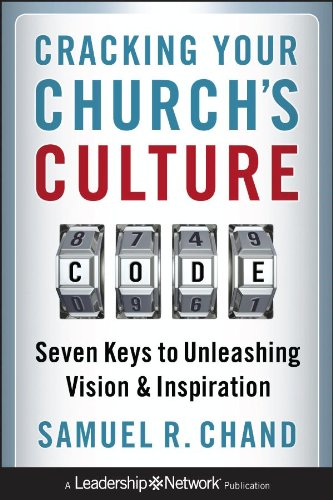 I have gained a great deal of insight from Sam Chand’s new book called Cracking Your Church’s Culture Code. Sam’s excerpt on “Trust” was so insightful that I asked him if I could share it on my blog. Trust is vital for any team yet it is fragile and easily destroyed. Fortunately, trust can be rebuilt causing a team to become stronger and healthier.
I have gained a great deal of insight from Sam Chand’s new book called Cracking Your Church’s Culture Code. Sam’s excerpt on “Trust” was so insightful that I asked him if I could share it on my blog. Trust is vital for any team yet it is fragile and easily destroyed. Fortunately, trust can be rebuilt causing a team to become stronger and healthier.
“Mutual trust among team members is the glue that makes everything good possible. Without it, a team quickly disintegrates into a gang of people protecting their turf and forming angry alliances. Trust is important up, down, and across the organizational structure. People need to have confidence that their supervisors mean what they say and say what they mean. When people trust each other, they make a strong connection between the vision, their own roles, the input of others, strategic planning, and the steps of implantation.
“Trust may be freely given, but it is usually earned as people watch each other respond in good times and bad. Integrity and consistency provide a firm foundation for relationships to thrive. Trust is fluid. It takes time to be built, but it can be destroyed in an instant. Trust grows in an environment that is HOT: honest, open, and transparent. People aren’t expected to be perfect, but they are expected to own their failures as well as their successes. Confession, contrary to popular opinion, is good both for the soul and for the person’s reputation.
“Failure and times of difficulty are the windows people use to determine if others are genuinely trustworthy. It’s easy to put on a happy face when times are good, but struggles reveal a person’s true nature. In hard times for an individual, the team, or the church, the hearts of everyone on the team are exposed. When others fail in an important task, do the leader and team members delight in pouncing on the person who blew it, or do they use the failure as an opportunity for growth? And the person who failed isn’t the only one who notices how he’s being treated. Everyone on the team is watching; all members are living the experience vicariously, anticipation how they’ll be treated when they fail.”
As the summer comes to a close, now is a great time to evaluate your team’s level of trust. Here are a some questions Sam encourages us to ask our teams:
- In what ways is trust being built or eroded on your team?
- How does creating a HOT (honest, open, and transparent) environment build trust? In what ways does it threaten people?
- How is failure treated on your team? How does that response affect the level of trust?
- How does the team handle gossip? Are there clear guidelines? Should there be some? Why or why not?







